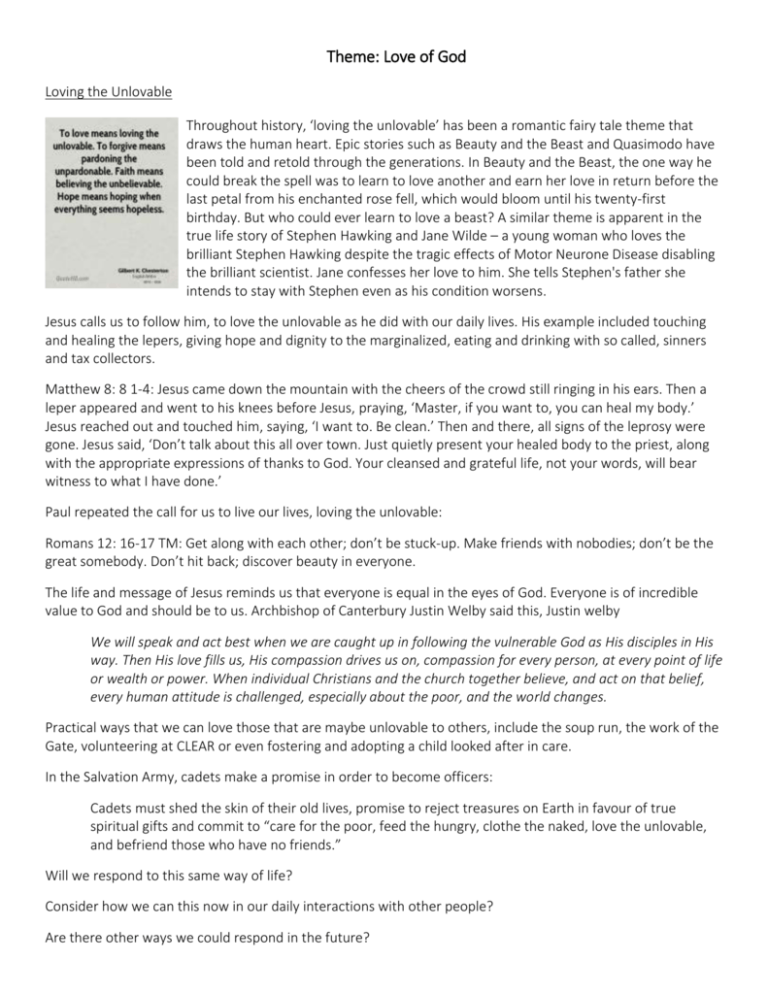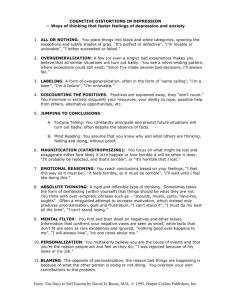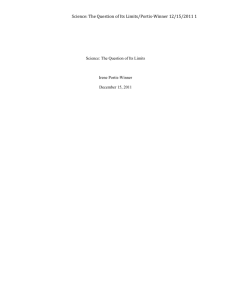Notes - City Life Church
advertisement

Theme: Love of God Loving the Unlovable Throughout history, ‘loving the unlovable’ has been a romantic fairy tale theme that draws the human heart. Epic stories such as Beauty and the Beast and Quasimodo have been told and retold through the generations. In Beauty and the Beast, the one way he could break the spell was to learn to love another and earn her love in return before the last petal from his enchanted rose fell, which would bloom until his twenty-first birthday. But who could ever learn to love a beast? A similar theme is apparent in the true life story of Stephen Hawking and Jane Wilde – a young woman who loves the brilliant Stephen Hawking despite the tragic effects of Motor Neurone Disease disabling the brilliant scientist. Jane confesses her love to him. She tells Stephen's father she intends to stay with Stephen even as his condition worsens. Jesus calls us to follow him, to love the unlovable as he did with our daily lives. His example included touching and healing the lepers, giving hope and dignity to the marginalized, eating and drinking with so called, sinners and tax collectors. Matthew 8: 8 1-4: Jesus came down the mountain with the cheers of the crowd still ringing in his ears. Then a leper appeared and went to his knees before Jesus, praying, ‘Master, if you want to, you can heal my body.’ Jesus reached out and touched him, saying, ‘I want to. Be clean.’ Then and there, all signs of the leprosy were gone. Jesus said, ‘Don’t talk about this all over town. Just quietly present your healed body to the priest, along with the appropriate expressions of thanks to God. Your cleansed and grateful life, not your words, will bear witness to what I have done.’ Paul repeated the call for us to live our lives, loving the unlovable: Romans 12: 16-17 TM: Get along with each other; don’t be stuck-up. Make friends with nobodies; don’t be the great somebody. Don’t hit back; discover beauty in everyone. The life and message of Jesus reminds us that everyone is equal in the eyes of God. Everyone is of incredible value to God and should be to us. Archbishop of Canterbury Justin Welby said this, Justin welby We will speak and act best when we are caught up in following the vulnerable God as His disciples in His way. Then His love fills us, His compassion drives us on, compassion for every person, at every point of life or wealth or power. When individual Christians and the church together believe, and act on that belief, every human attitude is challenged, especially about the poor, and the world changes. Practical ways that we can love those that are maybe unlovable to others, include the soup run, the work of the Gate, volunteering at CLEAR or even fostering and adopting a child looked after in care. In the Salvation Army, cadets make a promise in order to become officers: Cadets must shed the skin of their old lives, promise to reject treasures on Earth in favour of true spiritual gifts and commit to “care for the poor, feed the hungry, clothe the naked, love the unlovable, and befriend those who have no friends.” Will we respond to this same way of life? Consider how we can this now in our daily interactions with other people? Are there other ways we could respond in the future?










